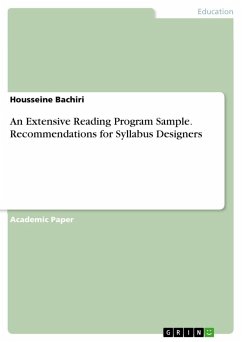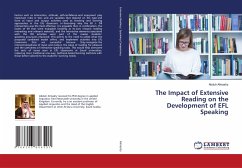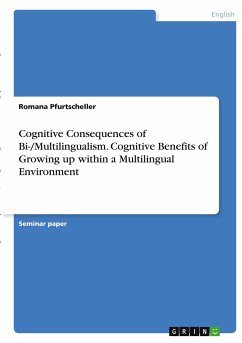Seminar paper from the year 2014 in the subject English Language and Literature Studies - Other, grade: 2,0, University of Osnabrück, language: English, abstract: Great reading skills are indispensable for a learner of a foreign language in order to succeed in second language learning. The aim is to be a good reader who is capable of understanding even difficult texts without much effort. Of course, modern life has an effect on pupils' activities at home so that watching videos or playing computer games can lead to neglect educational activities such as reading books. Of course, there are numerous pupils who really enjoy reading in their leisure time, regarding reading as a hobby. Taking pleasure in an activity generally requires ease and comfort. As second language learning can sometimes be hard and involves a great deal of expense and effort, most pupils have a negative attitude towards reading in a second language. At school, teachers even strengthen students' antipathy towards reading due to the approach they choose, that is, close and careful examination of difficult, short texts, also known as intensive reading. Another approach to language learning is extensive reading (short: ER) which is rather a less common approach compared to intensive reading. In short, extensive reading refers to the idea that pupils read as many books as possible. They have to be easy to understand so that pupils read them for pleasure. The question now is which of the two approaches contribute most to pupils' literary skills.In this paper, my goal is to prove that extensive reading programs are very beneficial to language acquisition, but they are not commonplace due to various constraints imposed on the implementation of extensive reading programs at school.At first, I will shortly explain what extensive reading really is by giving definitions. In order to achieve this, I will compare extensive reading with intensive reading which is more common in the context of school. Then, I will examine the numerous benefits of extensive reading as well as some obstacles which explain why extensive reading programs are difficult to implement. At the end, I will introduce practical options and possible solutions in terms of implementing extensive reading programs.
Hinweis: Dieser Artikel kann nur an eine deutsche Lieferadresse ausgeliefert werden.
Hinweis: Dieser Artikel kann nur an eine deutsche Lieferadresse ausgeliefert werden.








